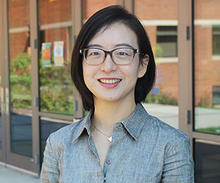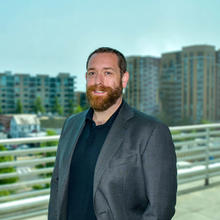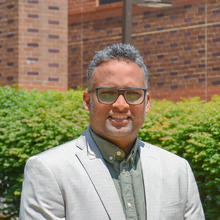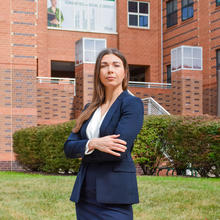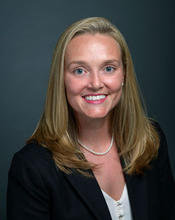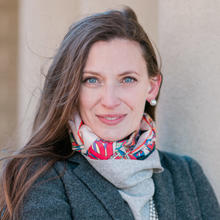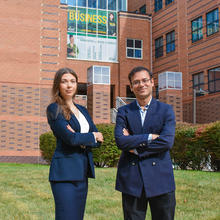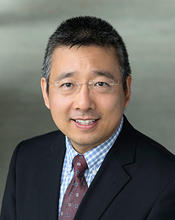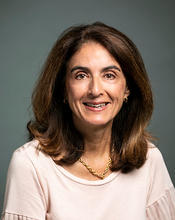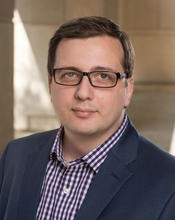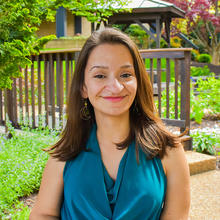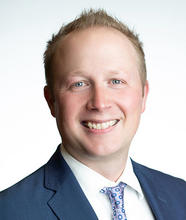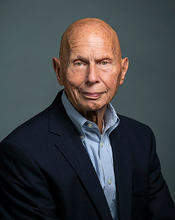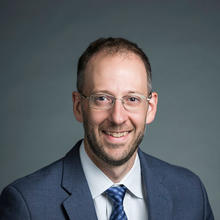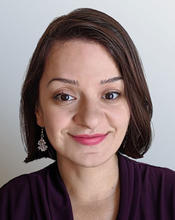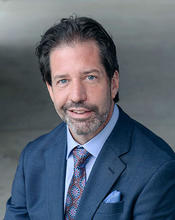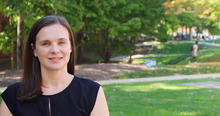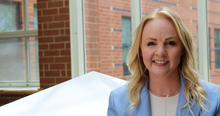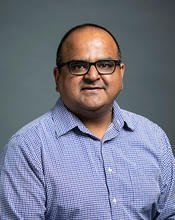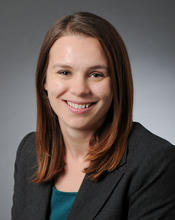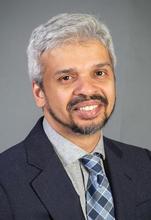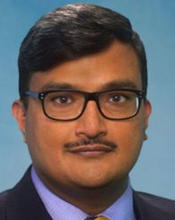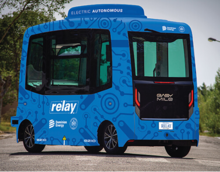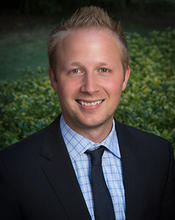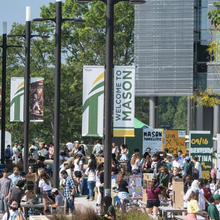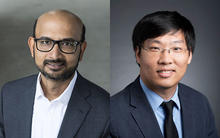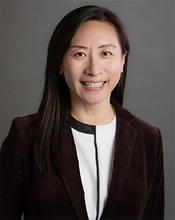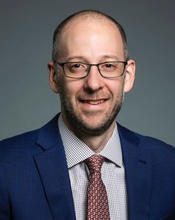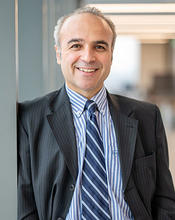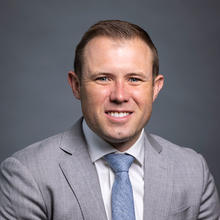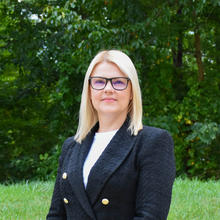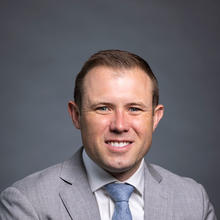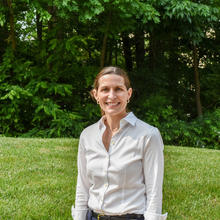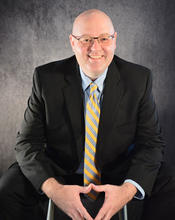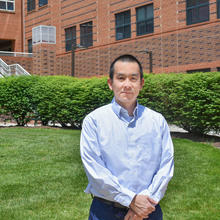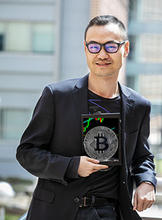The Costello College of Business at George Mason University is a leading center for impactful business research.
Our faculty are engaged with research that is both rigorous and relevant. Our faculty love to bring their research to the classroom, where they talk about their findings and ideas—which enriches the knowledge our students are exposed to. Our faculty research also shows up in policy and business practice, and is making an impact on the business of government and industry.
Mosaic tile
55k
Research Citations by Costello’s Top 10 most-cited scholars
Mosaic tile
#81
UT-Dallas North American Business School Research Rankings
Mosaic tile
19
Costello professors holding editorial positions at academic journals
Mosaic tile
22
Published papers in premier journals by Costello faculty in 2024-2025
Hot Topics
- April 5, 2024You can spend millions to buy a company for its employees, but how do you know they’ll stay put? Now, AI can predict post-deal turnover with a startling degree of accuracy. In a recently working paper, Jingyuan Yang, an information systems and operations management professor at the Costello College of Business at George Mason University, discovers how to efficiently predict employee turnover using an innovative AI-driven approach
- February 22, 2024Jiasun Li, an associate professor of finance at the Costello College of Business, has received a prestigious CAREER award from the National Science Foundation. According to the NSF website, the CAREER award is given to “early-career faculty who have the potential to serve as academic role models in research and education and to lead advances in the mission of their department or organization.”
- February 15, 2024Why the legal framework currently in play to protect our online data isn’t working—and how it might be improved. Brad Greenwood, an information systems professor at the Costello College of Business, researches breach notification laws.
- January 22, 2024To stay competitive in the war for talent, tech companies must weigh secrecy against specificity when crafting job ads. Are they disclosing too much?
- January 5, 2024Even famously neutral news organizations are not immune to the pressure to compete for clicks in the increasingly partisan online marketplace.
- January 2, 2024Despite the fears of regulators and skittish investors, clear and accurate signals of cryptocurrency quality may be hidden in plain sight.
- December 6, 2023What if you could outsource any computing task to the crowd without risking an epic fail? A newly developed set of technological tools could make this a reality.
- November 6, 2023With the rise of online learning, cheating has become easier than ever. And perhaps more prevalent as well, suggests one Mason accounting professor.
- October 18, 2023A disproportionate number of the most innovative CEOs hail from U.S. counties with a frontier history.
- October 11, 2023Can wearable tech resolve the crisis of underemployment among neurodiverse individuals? A multidisciplinary Mason research team is about to embark on a major study to find out.
- September 27, 2023Online technology has made real-time performance feedback a workplace reality. But a pair of Mason professors have found out about a major bias in the system.
- August 31, 2023A Mason professor finds yet another example of the value of diversity in senior management teams.
- October 12, 2022Corporate social responsibility (CSR) has been on the business leadership agenda for more than 50 years, yet executives and corporate boards still demand to see the "business case" for CSR. Clearly, CSR’s familiarity as a concept has not translated into coherent ideas of where it fits into the cost-benefit calculations that motivate business strategy. A forthcoming article in the Journal of Financial and Quantitative Analysis by Lei Gao, associate professor of finance at George Mason University School of Business, Jie (Jack) He (of University of Georgia) and Juan (Julie) Wu (of University of Nebraska – Lincoln) goes beyond the business case to form cause-and-effect connections involving companies’ CSR efforts.
- May 18, 2021Years spent engaging with consumers in the business world made School of Business Marketing faculty Niki Vlastara realize that how sustainability concepts and proposals were marketed significantly influenced how successful they became.
- April 12, 2021Yannis Bellos, associate professor for Information Systems and Operations Management, has been with George Mason University School of Business since 2012. His research interests sit at the intersection of sustainability and service operations, making him a perfect member of the Business for a Better World Center affiliate faculty team.
- May 21, 2020Ioannis Bellos, associate professor of information systems and operations management, began researching service design as a PhD student at Georgia Tech.
- February 13, 2024Deciding whether to reveal someone else’s secrets isn’t just a moral dilemma. It can also have a serious impact on your reputation. Costello College of Business assistant professor of management, Einav Hart, explores this issue in a series of studies.
- February 6, 2024Mason finance professor Lei Gao, finds a “precautionary effect” at work in the minds of Republican-supporting CEOs, leading to more frequent and accurate earnings forecasts.
- January 22, 2024To stay competitive in the war for talent, tech companies must weigh secrecy against specificity when crafting job ads. Are they disclosing too much?
- January 5, 2024Even famously neutral news organizations are not immune to the pressure to compete for clicks in the increasingly partisan online marketplace.
- November 6, 2023With the rise of online learning, cheating has become easier than ever. And perhaps more prevalent as well, suggests one Mason accounting professor.
- October 18, 2023A disproportionate number of the most innovative CEOs hail from U.S. counties with a frontier history.
- September 18, 2023When government contractors merge, comparing their customers can predict a lot about how investors will respond to the deal.
- September 15, 2023It’s not the combined skill level of the team that counts, so much as the chemistry (or lack thereof) between the members.
- September 12, 2023When it comes to relationships between co-workers, organizations’ stated priorities must match what’s happening under the hood.
- August 31, 2023A Mason professor finds yet another example of the value of diversity in senior management teams.
- August 9, 2023A new "mega-study" consisting of dozens of simultaneous, independently designed experiments shows that competitions have no automatic impact on our morality.
- August 2, 2023Mason Management Professor Matthew Cronin, highlights two blind spots in our thinking about mental health that are hindering progress toward more mindful workplaces.
- September 20, 2022Selling is inseparable from relationship management. In the past, the one-to-one "human touch" of a salesperson compensated for the standardized nature of their wares. However, today's sales environment tends towards customized solutions and co-creation with the client, especially in the B2B space. In many cases, these trends have greatly increased the network of stakeholders whom salespeople are obliged to keep happy. Research shows that B2B customers benefit from being more involved in the process, but what about the sales force? Does their increased interpersonal burden translate to higher risk of burnout? George Mason University School of Business Marketing Area Chair Jessica Hoppner's recently published paper in Industrial Marketing Management, co-authored by Paul Mills of Cleveland State University and David A. Griffith of Texas A&M University, finds some surprising answers.
- May 2, 2022In the earliest stage of innovation, creative proposals are judged according to their perceived novelty and usefulness. Sharaya Jones, assistant professor of marketing at Mason, has a simple yet counterintuitive rule for would-be innovators hawking their ideas: More is more. Her recent paper in Marketing Science, co-authored by Laura J. Kornish of University of Colorado Boulder, pits verbose and detailed idea descriptions against terse ones.
- April 7, 2022Turbulent times are challenging for decision-makers in business. This pervasive condition scholars call economic policy uncertainty (EPU) can turn a wise move into a costly one virtually overnight and is known to weigh on firm innovation, investments and value. When confronting EPU, what’s a firm to do? Saurabh Mishra, professor and area chair of marketing at Mason, and co-authors explores that question.
- March 24, 2022A paper co-authored by Jessica Hoppner, associate marketing professor at Mason, has been named a finalist for the American Marketing Association’s prestigious Weitz-Winer-O’Dell Award.
- February 15, 2022Research by Gautham Vadakkepatt, associate professor of marketing, finds strong indications that gender equality in advertising and actual outcomes for women are on parallel rising trajectories, in the markets that need it most.
- November 16, 2021Tarun Kushwaha, a professor of marketing at the George Mason University School of Business, recently ran an experiment that pitted the brainpower of actual human executives against trained algorithms.
- May 18, 2021Years spent engaging with consumers in the business world made School of Business Marketing faculty Niki Vlastara realize that how sustainability concepts and proposals were marketed significantly influenced how successful they became.
- November 5, 2020The Center for Retail Transformation and the Center for Real Estate Entrepreneurship at George Mason University School of Business have entered into a research collaboration with Fairfax County on the Relay project in Merrifield, Virginia. Relay is an autonomous (self-driving) electric public transportation shuttle that will circulate between the Mosaic District and the Dunn Loring Metrorail Station.
- November 4, 2019Brett Josephson, assistant professor of marketing, has studied government contracting since he was a PhD student. In recently published research, Josephson—together with Ju-Yeon Lee, assistant professor of marketing at Iowa State University, and Babu John Mariadoss and Jean Lynn Johnson, associate professors of marketing at Washington State University—recommended that companies focus on specialization.
- September 12, 2023When it comes to relationships between co-workers, organizations’ stated priorities must match what’s happening under the hood.
- August 31, 2023A Mason professor finds yet another example of the value of diversity in senior management teams.
- August 9, 2023A new "mega-study" consisting of dozens of simultaneous, independently designed experiments shows that competitions have no automatic impact on our morality.
- August 2, 2023Mason Management Professor Matthew Cronin, highlights two blind spots in our thinking about mental health that are hindering progress toward more mindful workplaces.
- July 26, 2023George Mason University School of Business boasts more than 60 full-time, research-active faculty across the accounting, finance, information systems and operations management, management, and marketing areas. In addition to pursuing research questions within their area of specialty, many School of Business scholars team up with peers from other disciplines to tackle complex societal problems.
- June 30, 2023School of Business professors Pallab Sanyal and Shun Ye explore the complex connections between managerial feedback and creative outcomes in new study.
- June 20, 2023Why are some firms more forthcoming than others about their social and environmental impact? It may have to do with the CEO’s personal incentives.
- June 6, 2023Understanding the mysterious resistance to remote work has been a defining theme of Management Professor Kevin Rockmann's research since 2004.
- May 30, 2023Not all pharmaceutical companies are equally well-suited to surf the sea change that’s happening in healthcare.
- May 12, 2023Our fears of asking questions that feel too sensitive or personal are often overblown. When phrased in the right way, they can lead to better decisions and stronger relationships.
- April 28, 2023Whether it is pressing deadlines, overwork, or employees feeling they are not being supported, anger in a work environment can be unavoidable. Over time, the anger and frustration can compound, causing anger to spread through the entire team or organization, creating what George Mason University expert Mandy O’Neill calls a “culture of anger.”
- April 19, 2023The inverse relationship between charity care and trustee compensation highlights curious contradictions in the management practices of some of the biggest non-profit hospitals in the U.S.
- April 3, 2024Mason accounting professor, David Koo, goes back through history to trace how financial reporting requirements affect investors’ long- vs. short-term thinking.
- January 22, 2024To stay competitive in the war for talent, tech companies must weigh secrecy against specificity when crafting job ads. Are they disclosing too much?
- January 8, 2024A Mason professor unpacks the complex, nuanced impact of the “revolving door” between industry and regulators in the accounting world.
- November 6, 2023With the rise of online learning, cheating has become easier than ever. And perhaps more prevalent as well, suggests one Mason accounting professor.
- October 2, 2023The economic balance is shifting toward private equity. But accounting scholars are still working from an outdated playbook.
- August 23, 2023Steve Maex, an assistant professor of accounting at George Mason University School of Business, recently received the American Accounting Association (AAA)’s Outstanding International Accounting Dissertation Award.
- June 20, 2023Why are some firms more forthcoming than others about their social and environmental impact? It may have to do with the CEO’s personal incentives.
- May 10, 2023A Mason professor is the sole academic working with the U.S. government in an unprecedented effort to measure environmental-economic activity.
- April 24, 2023When next year rolls around, millions of company owners and representatives may be in for a very unpleasant surprise–unless they’re fans of time-consuming paperwork.
- April 19, 2023The inverse relationship between charity care and trustee compensation highlights curious contradictions in the management practices of some of the biggest non-profit hospitals in the U.S.
- March 24, 2023Financially troubled U.S. hospitals are petitioning for more support from the federal government, but handouts won’t fix the underlying problem.
- March 20, 2023Mason research shows that hiring internal auditors, and giving them proper organizational authority, can be the first steps toward addressing the root causes of business failure.
- February 22, 2024Jiasun Li, an associate professor of finance at the Costello College of Business, has received a prestigious CAREER award from the National Science Foundation. According to the NSF website, the CAREER award is given to “early-career faculty who have the potential to serve as academic role models in research and education and to lead advances in the mission of their department or organization.”
- February 6, 2024Mason finance professor Lei Gao, finds a “precautionary effect” at work in the minds of Republican-supporting CEOs, leading to more frequent and accurate earnings forecasts.
- January 2, 2024Despite the fears of regulators and skittish investors, clear and accurate signals of cryptocurrency quality may be hidden in plain sight.
- December 6, 2023What if you could outsource any computing task to the crowd without risking an epic fail? A newly developed set of technological tools could make this a reality.
- October 18, 2023A disproportionate number of the most innovative CEOs hail from U.S. counties with a frontier history.
- October 2, 2023The economic balance is shifting toward private equity. But accounting scholars are still working from an outdated playbook.
- August 31, 2023A Mason professor finds yet another example of the value of diversity in senior management teams.
- July 26, 2023George Mason University School of Business boasts more than 60 full-time, research-active faculty across the accounting, finance, information systems and operations management, management, and marketing areas. In addition to pursuing research questions within their area of specialty, many School of Business scholars team up with peers from other disciplines to tackle complex societal problems.
- May 4, 2023Analysts and top executives are usually not on the same page –or even reading the same book.
- March 24, 2023Financially troubled U.S. hospitals are petitioning for more support from the federal government, but handouts won’t fix the underlying problem.
- March 15, 2023A George Mason University professor is working on ways to measure one of the great intangibles of today’s companies: employee talent.
- October 19, 2022For most drivers in the U.S., obeying a stop sign upon approaching an intersection is an unavoidable annoyance. But for Mason finance professor Jiasun Li, it’s a problem waiting to be solved. His recent working paper proposes a simple and economical improvement: removing one stop sign from every four-way intersection. According to his calculations, this would boost not only driver safety, but environmental sustainability as well.

